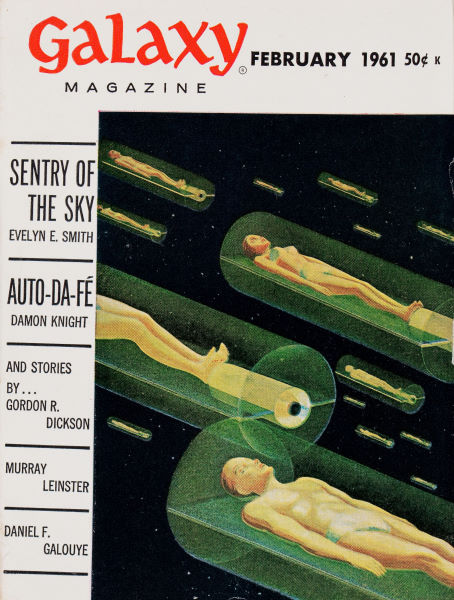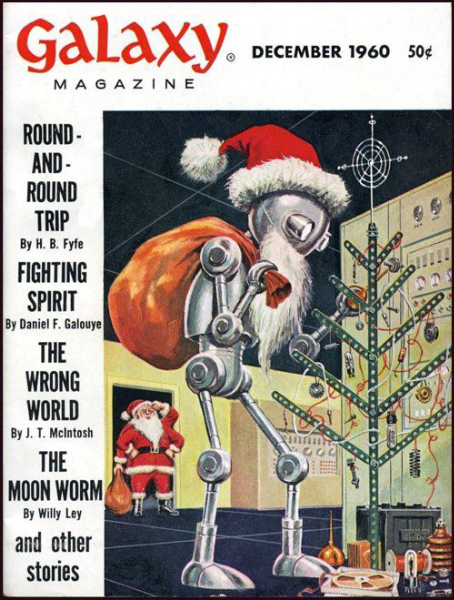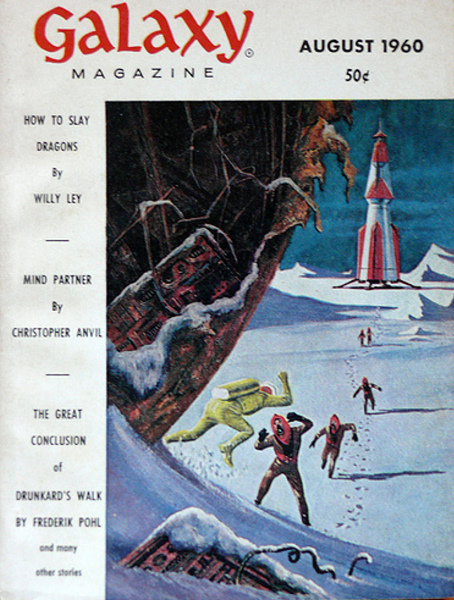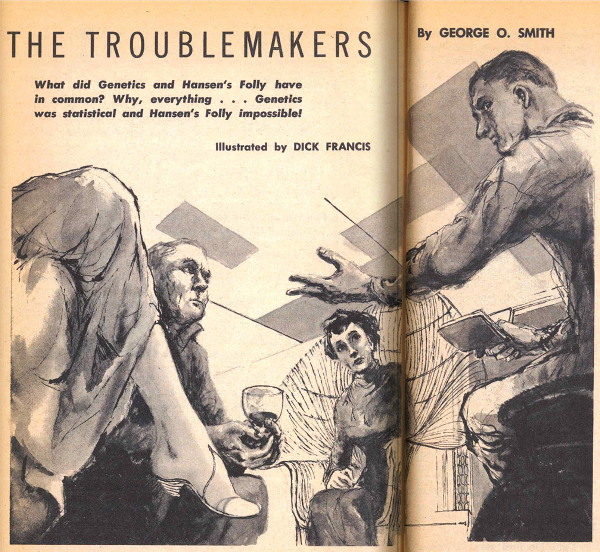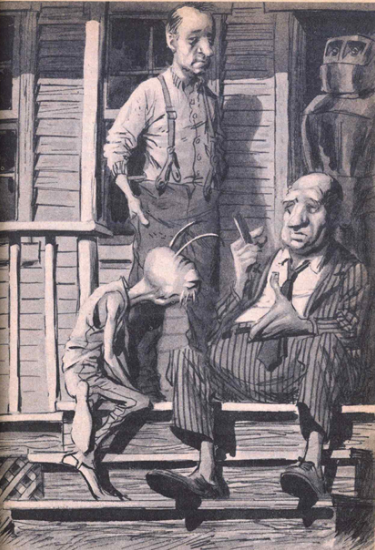My nephew, David, has been on an Israeli Kibbutz for a month now. We get letters from him every few days, mostly about the hard work, the monotony of the diet, and the isolation from the world. The other day, he sent a letter to my brother, Lou, who read it to me over the phone. Apparently, David went into the big port-town of Haifa and bought copies of Life, Time, and Newsweek. He was not impressed with the literary quality of any of them, but he did find Time particularly useful.
You see, Israeli bathrooms generally don't stock toilet paper…
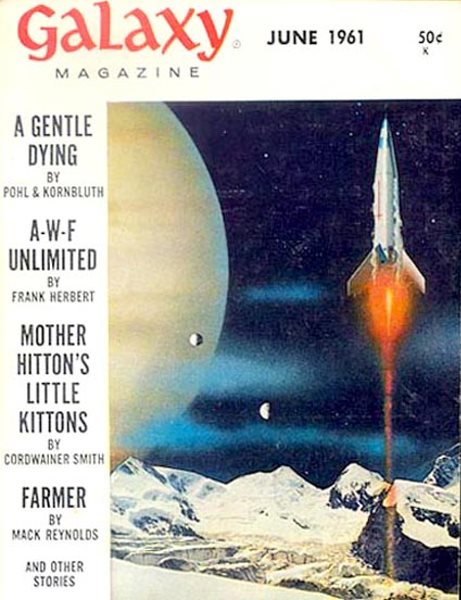
Which segues nicely into the first fiction review of the month. I'm happy to report I have absolutely nothing against the June 1961 Galaxy – including my backside. In fact, this magazine is quite good, at least so far. As usual, since this is a double-sized magazine, I'll review it in two parts.
First up is Mack Reynolds' unique novelette, Farmer. Set thirty years from now in the replanted forests of the Western Sahara, it's an interesting tale of intrigue and politics the likes of which I've not seen before. Reynolds has got a good grasp of the international scene, as evidenced by his spate of recent stories of the future Cold War. If this story has a failing, it is its somewhat smug and one-sided tone. Geopolitics should be a bit more ambiguous. It's also too good a setting for such a short story. Three stars.
Willy Ley's science column immediately follows. There's some good stuff in this one, particularly the opening piece on plans to melt the Arctic ice cap to improve the climate of the USSR (and, presumably, Scandinavia and Canada). Of course, if global warming happens on schedule, we won't need any outlandish engineering marvels to make this happen; we can just continue business as usual. Hail progress!
I also appreciated Ley's reply to one of his fans, who asked why he rarely covers space launches anymore. His answer? They come too quickly! Any reporting would have a 4-5 month delay – an eternity these days. It's hard enough for me to keep up. Four stars.
The Graybes of Raath is Neal Barret, Jr.'s third story in Galaxy. It should be a throw-away, what with the punny title, the non-shocker ending, and the hideous Don Martin art. But this tale of a well-meaning immigration agency attempting to find the home of a family of itinerant alien farmers is actually a lot of fun. Barrett is nothing if not consistent. Three stars.
Now here's a weird one. Fred Pohl and Cyril Kornbluth have a new duet out called A Gentle Dying. Now, the two have worked together for many years; that's not the surprising part. Nor is the fact that the story, about an incredibly elderly and beloved children's author's last moments, is good. No, it's strange because Kornbluth has been dead for five years! I can only imagine that Pohl (now de-facto editor of Galaxy, per last month's F&SF) dusted this one off after having waited for the right venue/slot-size. Three stars.
Last up is R.A. Lafferty's absolutely lovely The Weirdest World. Can a marooned alien blob find sanctuary, even happiness, among aliens so strange as those that live on Earth? I've always kind of liked Lafferty, but this one is his best to date, with its gentle writing, and its spot-on portrayal of cross-species telepathy. Five stars.
This column began with travel, and it ends with travel. My wife and I are in Las Vegas for a weekend, enjoying the food and the sights. Sinatra doesn't seem to be at the Sands right now, but that's all right. We'll catch Ol' Blue Eyes another time.


While we were here, we ran into Emily Jablon, a famous columnist and Jet Setter who spends much of her time flitting across the world. She gave us some tips on travel that were new even to us! Of course, we introduced her to Galactic Journeying, and what better way than with this month's Galaxy?






